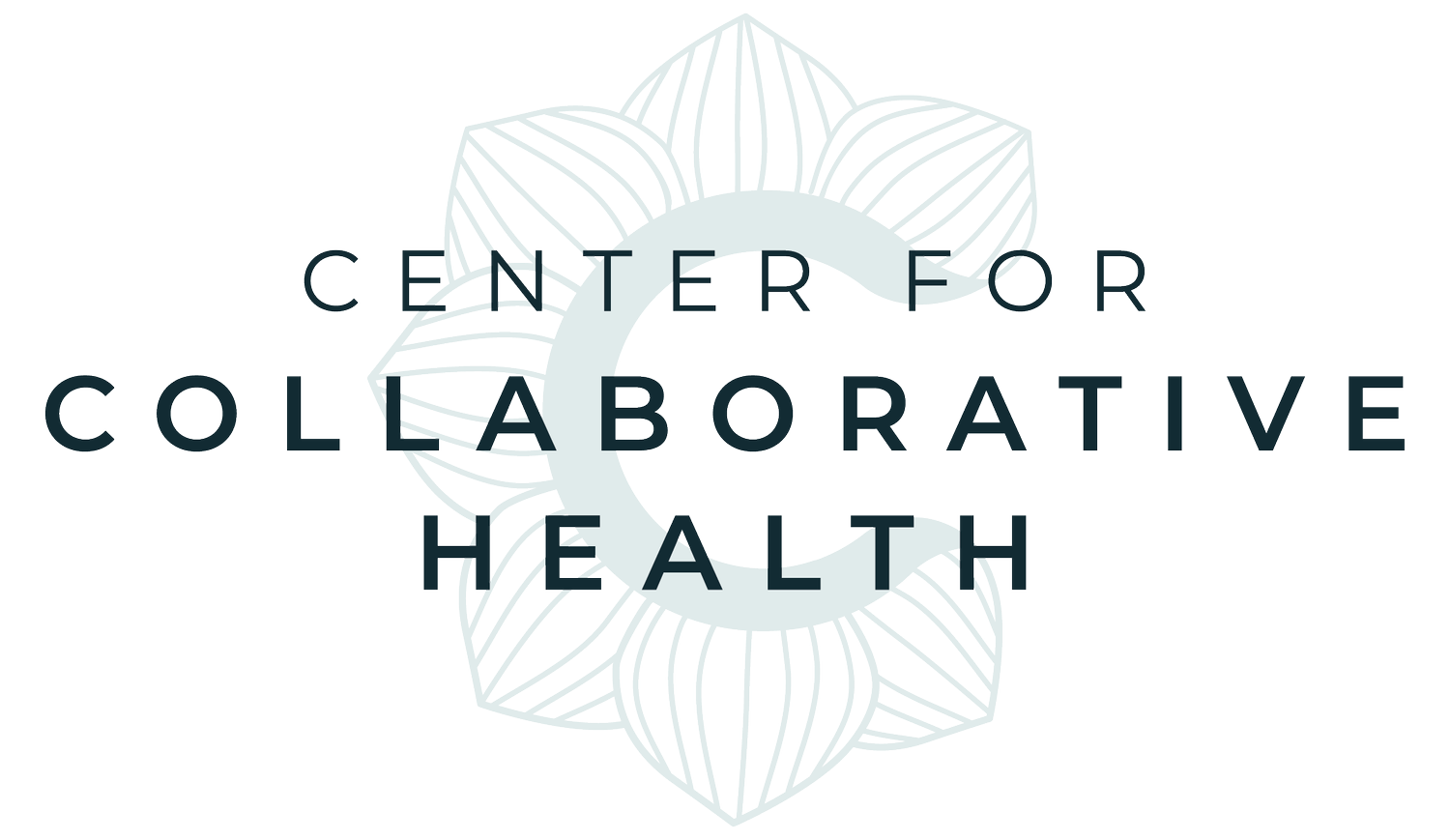
Therapy Services
We love what we do. We know what it is to be healthy and active – and we know how much you want that too. That’s why we make it our mission to help you feel your best.
Our Current Therapy Offerings:
-
Our psychotherapy services can be billed to insurance or billed directly to the client. CCH is an in-network provider for Aetna, Blue Cross Blue Shield, CIGNA Behavioral Health, Health Partners, Hennepin Health, Medica, Medical Assistance/Medicaid, OptumHealth Behavioral Solutions (formerly United Behavioral Health), PreferredOne, and UCare.
We are NOT in network with Medicare and will be unable to bill them for services regardless of whether they are your primary or secondary insurance.
CCH no longer accepts Employee Assistance Programs (EAP).
If you would like to use your out-of-network benefits with your insurance plan we will provide you with a receipt to submit to your insurance provider. Please contact your insurance company prior to your first session to ensure you are covered for mental health services and to understand your deductible/co-pay responsibilities.
Self-Pay Pricing:
Therapy Intake $250
Therapy Session $200
Individual Therapy
Our clinicians offer a broad range of psychotherapy services that incorporate cutting-edge perspectives in mental health and the treatment of trauma. In addition to the short-term and long-term impacts of trauma, we are also experienced in treating a wide array of other issues and disorders.
-
Abuse and Violence
Addiction
Adjustment to chronic medical conditions
Adolescent Issues
Anger Management
Anxiety Disorders
Career Counseling
Chemical Dependency and Recovery Issues
Codependency
Complex Trauma
Conduct Disorders
LGBT Related Issues
Life Coaching
Grief and Loss
Immigration and Acculturation
Incest
Learning Disabilities
Miscarriage and Abortion Recovery
Mood Disorders
Play Therapy
Postpartum Depression
PTSD
Relationship Issues
Seasonal Affective Disorder
Sexual Abuse
Sexual Identity Disorders
Sexual Perpetration
Sleep Disorders
Stress Reduction
TF-CBT
Traumatic Brain Injury
Workplace/Harassment
Please note that this list is not all-inclusive. Please contact us to inquire about your specific issue or concern. If we are unable to help at CCH, we can assist you in finding an appropriate referral. Many of these services are available in both English and Spanish.
The support I have received at the center for collaborative health has truly been life changing. For the first time in my life I have found hope that healing is possible.
- A.S.
Family Therapy and Parenting Support
Family therapy or counseling is a type of psychotherapy that can help family members improve their relationships, improve communication, and resolve conflicts or other issues. It may focus on helping improve a distressed relationship with your partner, children, or other family members.
Family therapy may include all family members, just those of a certain age, or those able and willing to participate. The length of treatment will depend on the specific concern, although it is often short-term. An individualized treatment plan based on your family’s situation will be created at the onset of treatment.
Family therapy sessions will teach you skills to strengthen family connections, improve your understanding of one another, and to get you through difficult times even after treatment has ended.
-
Family therapy can be useful in any family situation that causes distress. Common concerns addressed in family therapy include marital issues, sibling issues, conflicts among family members, child behavior (i.e. disrespect), anger, grief, adoption, violence, substance abuse, divorce or separation, blended families, and family mental illness.
-
In addition to Family Therapy, CCH offers Parenting Support. During this time of social distancing, parents may experience more stress and strain on their relationships with their children and children may exhibit misbehavior, defiance, tantrums, and blowing-up. Staff at CCH provide short virtual visits with parents to help navigate some of these added challenges in real time and will provide helpful tips for de-escalation and repair.
Cognitive Behavioral Therapy for insomnia (CBT-i)
Cognitive Behavioral Therapy for insomnia (CBT-i) is intended to be a short-term (6-8 sessions), structured, evidenced based treatment for people dealing with symptoms of insomnia. The World Health Organization defines insomnia as a problem initiating and/or maintaining sleep or the problem of non-restorative sleep (daytime fatigue despite sleep opportunity) that occurs at least three nights per week and is associated with daytime distress and/or impairment.
CBT-i research has identified that people with insomnia often have inaccurate or dysfunctional thoughts about sleep, which may lead to behaviors that create barriers to better sleep, which then reinforces these false narratives of "I can't sleep!"
CBT-i has been thoroughly researched, with results suggesting that CBT-i is at least as effective as medication in the short term, and much more effective in the long term. While medication can be a helpful "band aid," for trouble sleeping, it can often worsen people's experience of their sleep overall. CBT-i is a long term solution that has had amazing results for many.
-
In treatment, you will begin to break the cycle through identifying, challenging, and changing the narratives (thoughts/beliefs) you have related to sleep, and will then be guided to create a game plan for more restorative and consistent sleep.
Behavioral interventions that are utilized in this type of therapy include stimulus control, relaxation training, and sleep restriction/sleep compression protocols. With guidance, clients will find themselves experiencing more consistent sleep and will also experience lessened stress related to sleep.
CBT-i can often be an add-on treatment to other types of therapy or can be a standalone service for individuals finding sleep to be complicated, stressful, or challenging.
Couples Counseling
Couples therapy can help partners of all kinds who may be trying to repair a relationship, wanting to learn how to communicate better, or questioning whether to stay together. When problems in relationships create too much distance or if the conflict becomes too painful, it can be important to get outside help.
-
Premarital counseling
Adjustment to marriage
Emotional & Sexual Intimacy
Communication
Infidelity
Preparation for divorce
Co-parenting after divorce/separation
Lessening impact of issues with children on relationship
“My therapist at CCH embodies the word ‘non-judgemental.’
I have been to other therapists before, but working with her was the first time I felt safe to fully disclose all parts of myself, my past, and my struggles. In my sessions with my therapist, I have confronted my past, learned new ways of thinking and coping with problems, and developed greater self-worth. She has been a crucial support system for me throughout the past year and looking back a year later, while life is not perfect, I can clearly see I have come a long way. I am very glad I made the decision to step into her office that first day. "
- A.N.
Sex Therapy
Sexuality is a fundamental aspect of our relationship with ourselves and with significant others. Sex therapy is a specialized type of talk therapy that focuses primarily on sexual issues. Often we are unequipped to understand and resolve difficulties with our sexuality due to cultural norms, early experiences with sexuality, and a lack of access to competent sexual education.
Here at CCH we understand that healthy sexuality is vital to thriving and are committed to treatment based on current research and information on sexual health and best practices in sex therapy. We offer sex therapy in the context of both individual and relational therapy.
-
Desire Discrepancies
Low Libido
Sexual Performance
Erectile Dysfunction
Premature Ejaculation
Sexual Pain
Difficulty Communicating
Non-Monogamy
BDSM/Kink
Exploring Sexual Orientation
Gender Identity
Sexual Trauma
Infidelity
Sexual Compulsions
Pornography Misuse
Unwanted Sexual Behavior
Distressing Sexual Thoughts
This list is not all-inclusive. If you are having a sexual concern, please reach out and schedule a consultation with one of our sex therapists who can support you in finding a treatment option that can support your sexual health.
-
Sex therapy does not include any touching in-session, which can be a common misconception. A session of sex therapy will be the same as any other mental health therapy session, but the topic of discussion will focus on the sexuality/sexual health concern of the client.
Group Therapy
Group therapy can be an ideal way of making positive changes in your life in a safe and supportive environment with individuals who have experienced similar struggles.
The active nature of groups allows individuals to give and receive feedback, experience encouragement from others, and learn and practice new ways of interacting and connecting with others, which in turn helps individuals to have healthier relationships with themselves and others outside of the therapy room.
Groups can be focused on specific concerns like anxiety, depression, or grief and loss, or have a more general focus of improving a person’s social and interpersonal skills.
Current Group Offerings
Adolescent identity formation: 7 week program Mondays 4-5pm (developmental age of 15-20)
An outpatient closed group for adolescents focused on what’s next. Each week will focus on a different challenge of entering adulthood. The group will explore finding purpose, taking action, planning for the future and gaining a deeper understanding of avoidant patterns.
Topics covered:
Self exploration
Relationships
ACT based values work
Avoidant patterns
Skill building
Planning for the future
Adolescence is a difficult period in life where teens are focused to navigate difficult decisions and manage many transitions. This group will help provide teens with skills to help navigate this challenging period of life and explore finding purpose, taking action, planning for the future and gaining a deeper understanding of avoidant patterns. This will be a closed group that will meet weekly on Monday nights from 4-5pm. The group will run from 2/5/24-3/18/24.
Pricing: $50/session
Optional virtual parent add on: $25 group that meets 2/13, 2/27, and 3/12 at 4pm.
“The Center for Collaborative Health is very welcoming and refreshing! My experience has been nothing but positive and fulfilling. In addition, the tools and resources my therapist has provided me have been rewarding to my overall well being. I feel a sense of clarity, comfort, and hope when I walk through the doors of Center for Collaborative Health and I am eternally grateful!”
- T.W.
Eye Movement Desensitization and Reprocessing
Eye Movement Desensitization and Reprocessing (EMDR) is an integrative and research-proven method developed for the treatment of trauma. EMDR uses a set of standardized protocols that incorporates elements from many different treatment strategies. It is a form of psychotherapy that calms and restores the emotionally charged memories of disturbing life experiences, allowing healing to happen.
For some people, recalling a traumatic event may feel just as bad as what they experienced going through it the first time, which in turn can negatively affect how a person relates to others and how they see the world. EMDR works directly on how the brain processes information, specifically helping people to deal with traumatic memories in a new and less emotionally charged way. The goal of EMDR is to help the person no longer relive the feelings, images, sounds, and smells of the traumatic experience.
-
EMDR does not rely on traditional talk therapy strategies. Instead, during an EMDR session, a client will be invited to focus on an upsetting event and then the therapist will begin sets of side-to-side eye movements, sounds, or taps. The client will be guided to notice what comes to mind after each set such as mental images, feelings, or beliefs regarding the event. The sets of side-to side movements will then be repeated until the event becomes less disturbing.
-
The client and the therapist will work together to determine if EMDR is a good fit. EMDR may be used within a standard talking therapy, as an adjunctive therapy with a separate therapist, or as a treatment all by itself.
-
In addition to trauma, EMDR can be used to address a wide range of challenges including:
Performance anxiety
Personality disorders
PTSD and other trauma and stress-related issues
Sexual assault
Sleep disturbance
Substance abuse and addiction
Violence and abuse
Anxiety, panic attacks, and phobias
Chronic Illness and medical issues
Depression and bipolar disorders
Dissociative disorders
Eating disorders
Grief and loss
Pain
If you are looking for additional information about EMDR, the EMDR International Association website is a great place to start! We’ve provided a few links to some of their articles that we believe may be helpful:
Front Line Workers
Front line workers, such as public safety and healthcare workers, regularly experience intense and emotionally charged situations. They are often forced to make critical decisions while responding to emergencies. At times, being exposed to this level of trauma can lead to the development of post-traumatic stress disorder (PTSD), depression, or anxiety; this type of trauma-related stress can result after a single event or following the accumulation of numerous events.
Regardless of how one comes to experience this type of stress, it can result in not functioning at your full capacity or the way you want to be. The first step in managing PTSD or work-related depression and anxiety is acknowledging a problem exists.
-
PTSD: nightmares, flashbacks, problems remembering the event, avoidance, difficulties with sleep, being easily startled, and pulling away from family and friends.
Depression: persistent feelings of sadness, loss of interest or enjoyment in activities, feelings of hopelessness and helplessness, changes to appetite or weight, sleep disturbance, difficulties concentrating and making decisions, and thoughts of death or wanting to die.
Anxiety: excessive worry, racing thoughts, irritability, restlessness or agitation, muscle tension, panic-like symptoms, difficulties concentrating, and problems with sleep.
If you believe you may have any of these symptoms, the clinicians at CCH want to help.
The clinicians at CCH use their expertise in the treatment of trauma to provide mental health services to all front-line workers and their families. We apply our knowledge of trauma-informed practices and evidence-based treatments to deliver specialized care to all those who have been exposed to trauma. Our clinicians are trained in Eye Movement and Desensitization Reprocessing (EMDR), an evidenced-based treatment modality that alleviates the distress associated with traumatic memories. Additionally, several of our clinicians are trained in Trauma-Focused Cognitive Behavioral Therapy (TF-CBT), Trauma Center Trauma Sensitive Yoga (TCTSY), and other cognitive behavioral therapies.
In addition to individual therapy, our doctoral level clinical psychologists provide specialized PTSD evaluations.




